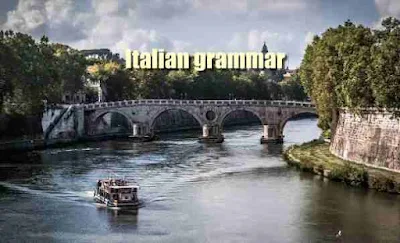Italian grammar
 |
| Italian grammar - PDF by C. H. Grandgent |
This volume is the result of an attempt to put into convenient form and the smallest possible compass all the grammar that the ordinary student of Italian will need. Short as the book is, it contains some paragraphs which beginners will probably skip: the longer lists of words and endings, and a great part of the chapters on suffixes and irregular verbs will be useful mainly for reference.
The vocabularies cover the twenty-one exercises; they are not intended to include words explained in the notes, nor proper names that are exactly the same in Italian and in English. I have endeavoured to make the book represent the Italian language as it is spoken and written in the present day; the exercises are taken chiefly from reading books lately prepared for Tuscan schools. Still, I have tried to give as many obsolete forms as students of the Italian classics will require. It has been my aim throughout to make the rules clear for all classes of pupils, even for those ignorant of other foreign languages, provided they understand the technical words commonly used in grammar. With this object in view,
I have ascribed to the Italian vowels the pronunciation of the English oties that are most like them: an accurate description of the Italian sounds would, I fear, prove confusing to beginners who have had no training in phonetics. It will be easy for the instructor to explain not only. the vowels, but some of the consonants, and the division of words into syllables, are much better than can be done in a book like this.
The authorities I have consulted most are the dictionaries of Fanfani, Rigutini and Fanfani, Fomari {Nuovo Bazzarini), and Tommaseo and Bellini. I have made but little use of other gram-mars; I am, however, indebted to Toscani for some ideas and a few of my examples. The chapters on syntax, and the treatment of irregular verbs, pronouns, suffixes, and the plural of words in -co and -go are almost entirely the result of the original work. In conclusion,
I wish to express my gratitude to Professor Nash, of Harvard, and to my friend and teacher, Sig. Filippo Orlando, of Florence, and to the gentlemen who assisted me in correcting the proof sheets; and I wish above all to thank Professor Sheldon, of Harvard, and Professor Bendelari, of Yale, without whose aid and encouragement I should scarcely have ventured to offer this book to the public.

